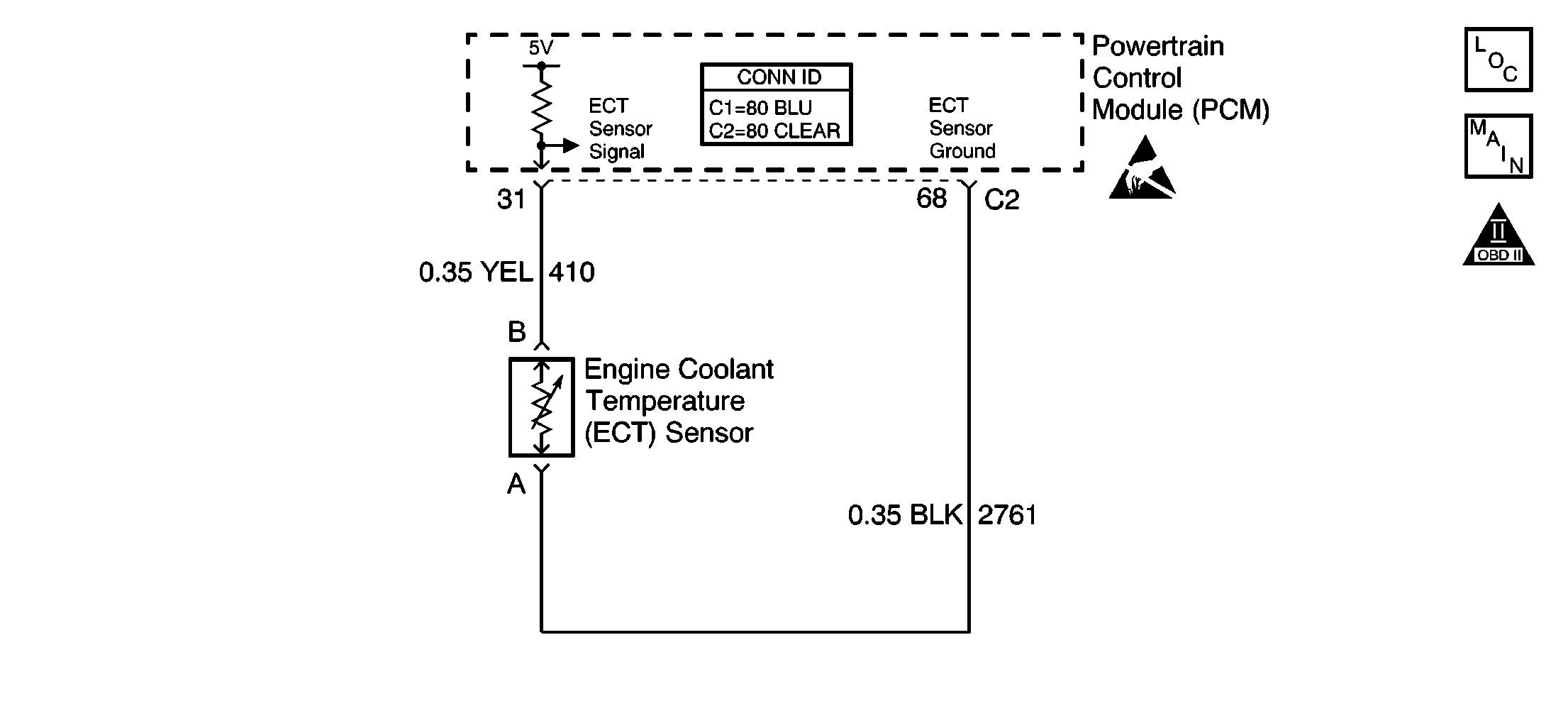
Circuit Description
The engine coolant temperature (ECT) sensor is a thermistor, or variable resistor, that measures the temperature of the engine coolant. The PCM supplies 5 volts to the ECT signal circuit through a pull-up resistor. When the engine coolant temperature is cold, the sensor resistance is high. When the engine coolant temperature increases, the sensor resistance lowers. With high sensor resistance, the PCM detects a high voltage on the ECT signal circuit. With lower sensor resistance, the PCM detects a lower voltage on the ECT signal circuit. If the PCM detects an excessively low ECT signal voltage (a high temperature indication), DTC P0117 will set.
Conditions for Running the DTC
| • | IAT sensor DTCs are not set. |
| • | The engine has been running for at least 10 seconds. |
| • | Intake air temperature is less than 70°C (158°F). |
Conditions for Setting the DTC
| • | The ECT sensor signal voltage is less than 0.08 volts. The temperature would be approximately 137°C (278°F). |
| • | The condition exists for less than 1 second. |
Action Taken When the DTC Sets
| • | The PCM illuminates the malfunction indicator lamp (MIL) during the second consecutive trip in which the diagnostic test runs and fails. |
| • | The PCM stores the conditions present when the DTC set as Freeze Frame/Failure Records data. |
Conditions for Clearing the MIL/DTC
| • | The PCM will turn the MIL OFF after the third consecutive trip in which the diagnostic runs and passes. |
| • | The history DTC will clear after 40 consecutive warm-up cycles have occurred without a malfunction. |
| • | The DTC can be cleared by using the scan tool Clear DTC Information function. |
Diagnostic Aids
For intermittent conditions, refer to DTC P1114 Engine Coolant Temperature (ECT) Sensor Circuit Intermittent Low Voltage and/or Symptoms .
Step | Action | Values | Yes | No |
|---|---|---|---|---|
1 | Did you perform the Powertrain On-Board Diagnostic (OBD) System Check? | -- | ||
2 |
Does the scan tool indicate an engine coolant temperature more than the specified value? | 125°C (257°F) | ||
3 |
Does the scan tool indicate that DTC P0117 failed last test? | -- | Go to Diagnostic Aids | |
4 |
Does the scan tool indicate an engine coolant temperature near the specified value? | -40°C (-40°F) | ||
5 |
Did you find and correct the condition? | -- | ||
6 | Replace the ECT sensor. Refer to Engine Coolant Temperature Sensor Replacement . Is the action complete? | -- | -- | |
7 |
Important: The replacement PCM must be programmed. Replace the PCM. Refer to Powertrain Control Module Replacement/Programming . Is the action complete? | -- | -- | |
8 |
Does the scan tool indicate that DTC P0117 passed? | -- | System OK |
